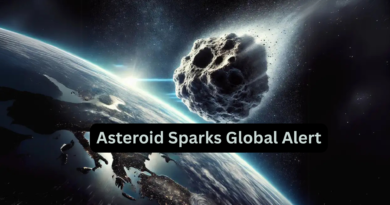Japan Megaquake Prophecy Sparks Global Anxiety
A prophecy predicting a devastating earthquake in Japan on July 5 sparked widespread panic both domestically and internationally, despite being dismissed by experts as baseless. The viral rumor, initially circulated on social media platforms by a self-proclaimed clairvoyant, claimed a “magnitude 10.0 megaquake” would strike the Kanto region, including Tokyo. Though unsupported by scientific data, the prediction spread rapidly, triggering anxiety among the public and causing a measurable shift in travel behavior and consumer confidence.
Japan’s Meteorological Agency and leading geologists were quick to debunk the claim, reiterating that no current technology exists to predict earthquakes with such precision. “There is no credible scientific methodology that allows the accurate forecasting of date, time, and location of earthquakes,” stated agency spokesperson Hiroshi Tanaka. The agency urged the public to rely only on official channels and avoid spreading misinformation that can lead to unnecessary panic and disruption.
Despite official reassurances, the prophecy’s impact was palpable. Domestic tourism in Tokyo and surrounding areas saw a 12% drop in bookings in the days leading up to July 5, according to a report by the Japan Travel Bureau. International travelers, particularly from neighboring countries like South Korea and China, canceled or postponed trips in droves. Several airlines and hospitality companies reported spikes in inquiries about safety and refund policies, highlighting the tangible economic impact of viral misinformation.
Retail behavior also reflected public anxiety. Supermarkets in parts of Tokyo experienced panic buying, with shelves cleared of bottled water, emergency rations, and batteries. Schools in some districts reported higher-than-average absences, as parents opted to keep their children at home “just in case.” Social media was flooded with anxious discussions, with hashtags like #TokyoQuake and #July5Prophecy trending globally for several days.
Experts warned that the incident underscores the dangers of misinformation in the digital age. “The rapid dissemination of false earthquake predictions shows how vulnerable public perception can be,” said Professor Emi Nakamura, a disaster psychology specialist at the University of Tokyo. “In a country as seismically active as Japan, promoting preparedness based on facts is crucial. Fear-driven narratives can undermine trust in official communication and create chaos.”
Though no quake occurred on July 5, the event has reignited conversations about digital literacy, disaster education, and the responsibility of social media platforms in curbing misinformation. Japanese authorities are now considering stricter regulations on the public sharing of unverified disaster predictions. Meanwhile, the prophecy that never materialized leaves behind a cautionary talen about how fear, once planted, can ripple far beyond borders and logic.




